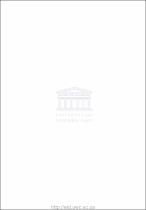| dc.description.abstract | Under the previous apartheid system in South Africa, the history of black South Africans and the history of South Africa's liberation struggle, were marginalised and ignored. Information dealing with resistance to the apartheid system was banned, and possession of these banned
literatures was punishable by law. In the post-apartheid system, much of this banned documents were returned to South Africa, from outside of it's borders, and has found it's home in archival institutions which have dedicated it's work to communicating South Africa's largely unwritten histories. The Robben Island Museum is one such institution. As a national museum, national monument and recently declared World Heritage Site, there is increasing pressure for the Robben Island Museum to develop and implement collection policies, which govern the way in which the museum and archival collections are accessed, to be able to give maximum protection to endangered collections, and to ensure that these are available for posterity. These policies are essentially restrictive, and within the context of an apartheid legacy which denied access to information, the museum is faced with the challenge of balancing the need for access with that of preserving the material in it's care. Digitization of archival collections is dramatically changing the way in which access to these collections is being developed. This has been demonstrated in international institutions that have already entered the digital arena. In addition to providing a general overview on the status of digitization initiatives in photographic archives, this research has as it's central focus, the Mayibuye photographic archive of the Robben Island Museum. Important considerations of this study included issues relating to technical standards for digitizing the photographic collections, copyright and authenticity in the digital environment, and selecting images for digitization. Technical standards included storage formats, computer hardware, metadata standards, scanning depth and resolution, which are all central to the management of the digitization process. Copyright was identified as the single most important factor in selecting images for digitization, and the formalisation of copyright agreements with photographers highlighted as the most important step which should precede digitization. | en_US |

